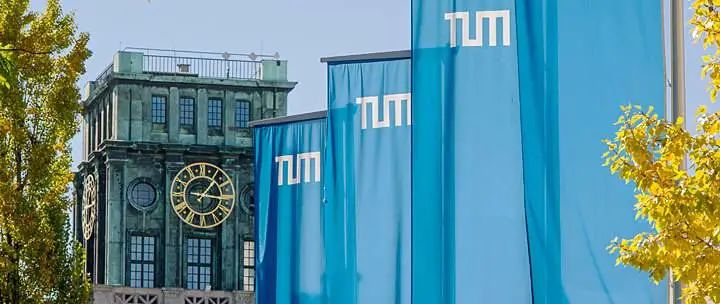
英文对照
Nanyang Technological University (NTU) President, Professor Bertil Andersson has been conferred a prestigious honorary degree by Edinburgh University, one of Scotland’s most established universities. Receiving the same honours with Professor Andersson were Professor Harold Kroto, who won the 1996 Nobel Prize in Chemistry and DuPont Chair and Chief Executive Officer Mrs Ellen J Kullman, ranked the world’s fourth most powerful woman in 2011 by Forbes magazine.Professor Andersson was honoured for his ground-breaking research in biochemistry, and for his contributions to higher education and the fostering of closer ties between Singapore and the United Kingdom. This is Prof Andersson’s second honorary doctorate in two months, and fifth in three years. Just last month, he received an honorary degree from South Korea’s Hanyang University, and in 2011, from Hebrew University of Jerusalem, Symbiosis International University (India), and the University of New South Wales.
The world renowned plant biochemist was conferred the Honorary Degree of Doctor of Science by the University’s Vice Chancellor Professor Sir Timothy O’Shea on Saturday, 29 June. The ceremony was held at McEwan Hall, the historic graduating hall of Edinburgh University.
In the Laureation speech detailing Prof Andersson’s achievements, Professor Andy Mount of Edinburgh’s School of Chemistry said Prof Andersson was being recognised for fostering closer ties between NTU and Edinburgh University, the enduring impact of his pioneering work on the artificial leaf, and his contributions to the advancement of knowledge through the highly influential positions that he has held over the years, such as being the Chief Executive of the European Science Foundation, a member of the Board of Trustees of the Nobel Foundation, a member of the Nobel Committee for Chemistry, and Rector of Linköping University.
Prof Mount also highlighted Prof Andersson’s key role in raising NTU’s international profile and transforming it into one of the fastest-growing research-intensive universities in the world.Excited but humbled by the award, Prof Andersson said, “This award by Edinburgh University is a great honour not only for me, but also for NTU. The University has risen high and fast in the last two years to become one of the world’s top 50 universities. Singapore can be proud that NTU’s Chemistry programme, which is less than 10 years old, ranks among the world’s top 50 for Chemistry, on par with established universities such as Edinburgh with a much longer and deeper track record in the subject.”
NTU has been making multiple leaps in various global university rankings over the past few years. In 2012, NTU was ranked 47th in the Quacquarelli Symonds’ (QS) World University Rankings, jumping 27 places within two years. NTU also made a stellar leap in the Times Higher Education World University Rankings, rocketing up 83 places to break into the Top 100. Most recently last month, NTU was ranked No. 2 in QS rankings of the world’s top young universities, and climbed eight places to No. 8 in a similar ranking by Times Higher Education. NTU also shot up a remarkable seven places to rank among the top 10 in the Asian universities ranking by QS.Renowned biochemist a firm believer in multidisciplinary problem solving
Prof Andersson is a world renowned biochemist who has authored more than 300 papers covering topics from photosynthesis research to biological membranes. His pioneering research work into how plants cope with light and heat stress, and how photosynthesis takes place under extreme conditions have been influential internationally in advancing the concept of an artificial leaf that can become a potentially inexpensive source of solar energy for the world.For his outstanding work in biochemistry research and for his contributions to European and Austrian research, Prof Andersson was awarded the prestigious Wilhelm Exner Medal in 2010, joining an elite group of scientists that includes 16 Nobel Prize winners.Prof Andersson has a longstanding association with the Nobel Foundation and helmed the European Science Foundation before he joined NTU as Provost in 2007. He was appointed the University’s President in 2011.
At NTU, Prof Andersson has been the key driver of the university’s institutional changes across science, engineering and other fields. A firm believer in the importance of interdisciplinary knowledge, Prof Andersson pushed for greater interdisciplinary teaching and research in domains such as sustainability, healthcare, new media, East-West knowledge and innovation.Prof Andersson, an Imperial Fellow, was also instrumental in Imperial College London coming to Singapore to set up a joint medical school with NTU. The new Lee Kong Chian School of Medicine will welcome its first batch of students next month. Active ties with Edinburgh University and the UK
NTU has active links with Edinburgh, with two agreements that promote student exchanges particularly among both universities’ science and business schools. The success of the exchange programme with NTU which started in 2008 has encouraged Edinburgh to develop further exchanges with the likes of Hong Kong, South Korea, Japan and Siberia. NTU was the first destination outside Europe where it chose to send undergraduate students on its Year Abroad programme. Edinburgh attributes much of the success of the exchange programme with NTU to the excellent staff and top-notch research facilities available at NTU’s campus.
Edinburgh University is particularly renowned for its Chemistry programme, which ranks among the top 50 in the world. The Universities of Edinburgh and St Andrews formed EaStCHEM, the leading Chemistry research school in Scotland, and the largest in the UK, with around 500 researchers. EaStCHEM ranked ahead of Oxford and Cambridge in the country’s Research Assessment Exercise 2008, demonstrating both breadth and depth in both core and interdisciplinary research.








